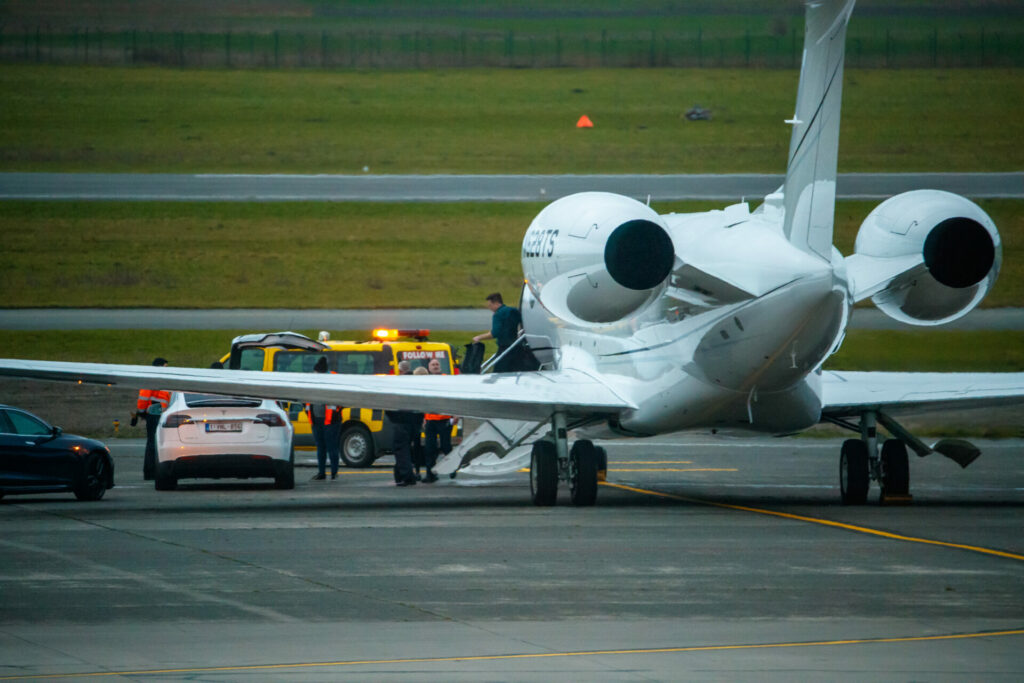To compensate for the huge CO2 emissions, the Flemish Greens are calling for a €3,000 flight tax for users of private jets.
Private jet use is on the rise, despite how many cheap flights are available. A return trip to Ibiza by private jet costs €12,000. Despite the costly journeys, private jet emissions increased between 2015 and 2019 by 31%. When coronavirus hit in 2020, its popularity further increased.
Groens' co-leader Nadia Naji wants to curb this development by introducing a tax on private jets:
"An average four-hour flight in a private jet emits as much CO2 as the average European in a whole year. In times of a massive climate crisis, we take it for granted that those who opt for a private jet will compensate for its excessive emissions."
In the footsteps of the Swiss
At the moment, private jets are almost completely exempt from taxes, as they are not subject to the EU emissions trading system. Kerosene, used to stabilise aviation, is tax free.
Belgium's Federal Government introduced a flight tax at the start of the year, but it only applies to flights of up to 500 km.
For Naji, the measure does not go far enough, so she has proposed a tax of €3,000 on private jets, following Switzerland's example. In her proposal, the amount can increase depending on flight distance and aircraft weight.
"Private jets pump huge amounts of CO2 into the air, while there are alternatives. Anyone who opts for a private jet will have to contribute to the extra emissions."
For Naji, the ambition is to one day introduce the tax at a European level, but for now, wants Belgium to set "a good example".
However, actually implementing the tax may be easier said than done for Groen's leader, as she does not currently sit in any of Belgium's parliaments.
Building a green coalition
Naji hopes to find support from other political partners, although no potential coalition partner has so far commented on the proposal.
The Flemish Greens believe the proposal would raise "several millions." With these funds, the party wants to invest in other transport alternatives, including railways.
"The most ecological choice should also be the cheapest. Smooth, cheaper train connections worldwide will be the best argument to convince more and more people to train more and fly less," said Naji.

